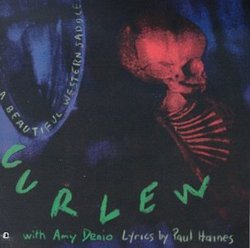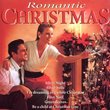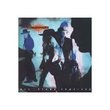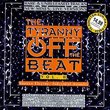| All Artists: Curlew, Amy Denio Title: Beautiful Western Saddle Members Wishing: 2 Total Copies: 0 Label: Cuneiform Original Release Date: 7/23/1998 Re-Release Date: 3/29/1995 Genres: Alternative Rock, Jazz, Pop, Rock Styles: Avant Garde & Free Jazz, Progressive, Progressive Rock Number of Discs: 1 SwapaCD Credits: 1 UPC: 045775005027 |
Search - Curlew, Amy Denio :: Beautiful Western Saddle
 | Curlew, Amy Denio Beautiful Western Saddle Genres: Alternative Rock, Jazz, Pop, Rock
|
Larger Image |
CD DetailsSimilar CDs
|
CD ReviewsWonderfully sung album of slaphappy jazz songs Brian Block | Greensboro, North Carolina | 03/16/1999 (5 out of 5 stars) "Curlew, except on this album, are an instrumental jazz band. I'm sure they're excellent that way. Considered as instrumental music alone, WESTERN SADDLE is quite fetching and varied, quite a bit like a jazzy take on the naive multi-ethnic pop mish-mash of Slapp Happy; having Tom Cora on cello, which is apparently about as close as the instrument comes to having Jimi Hendrix on guitar (especially, alas, now that Cora is dead), is another plus. But I'm sadly prejudiced against instrumental music. Luckily this album, a song album with the lovely Amy Denio on vocals, is absolutely wonderful.Amy does not, as it happens, continue the Slapp Happy comparisons with her vocals, except for the part about her being female. Far from being pre-accented to appear in a Nazi nightclub in Cabaret, she makes versatile use of a clear, straightforwardly pretty voice. In fact, she rates with Tori Amos, Tracey Amos (Rise Robots Rise), and Tanya Donnelly (Belly, the "Feed The Tree"/"Super-Connected" band) as my favorite singer in the world, and this _isn't_ one of my quirky opinions. "Let's Sit Right Down", the vocally multitracked opener, is for my money the finest a capella vocal arrangement in pop history (not to say there's heavy competition), and when I include it on mix-tapes I often get surprised, enthused agreement from people who didn't think of themselves as liking a capella at all. She's that good.Some of the rest: "Poem For Gretchen Ruth" is a gorgeous slow dance. "All's Well That Ends" is set quietly to a hollow drum thud. "The Prince", extremely Slapp Happy, is an artfully ruined tango, cello and drum and sax and vocals creating a skittery tension that proper timing would never generate. "What Is Free To A Good Home?", the only track where Amy writes the music, starts with Coltrane-y sax over a dark-toned march, but resolves into a weird celebratory syllable-trading chant that thrusts its 12/8 time signature aggressively into your ear and features some truly strange bass playing by Ann Rupel. "Still Trying" is recuperation, a slow pretty jazz ballad, at least until Amy starts trying out as many different goofily melodramatic deliveries of the phrase "to light the fire" as she can (then Cora enters with a free-jazz gypsy cello over agile drums). "Breakfast" is the smooth, lilting, soap-commercial chipper jazz that heartland America would've listened to if jazz had been heartland music--- but it's better than that sounds. "Today" and "Human Weather Words" are cello-driven and mournful. "Now Can You Tell Me Or Can It Still Be Told?", despite being in 13/4 time, is a terrific uptempo pop song with male-female harmony vox and squiggly sax over a staccato guitar that sometimes seems to stop and erase its tracks like a pencil. And the minimalist "Paint Me (dedicated to the president of the United States of America)", the closer, slowly builds itself over 5 minutes over a hollow, echoey 2-measure, 8-note guitar line and the complete lyrics "Paint me. I'm a dog playing cards". I think it's a fabulous final track, and I _hate_ that sort of minimalist crap. Great vocal arrangement again, of course.One oddity: the lyrics were provided by one Paul Haines, a professional poet in the William Carlos Williams mode. As lyrics go, they're okay, I guess, a few intriguing images and a few dumb ones leading, that I can see, nowhere in particular. They are not the sort of lyrics that one would expect to sneak their way onto two of my favorite albums--- yet Haines also, back in '72, provided the words to Carla Bley's jazz/ rock/ opera/ gypsy-folk opus ESCALATOR OVER THE HILL. That and SADDLE are both one-shot jazz-with-pop-vocals experiments. Both albums are strange. SADDLE, however, is much less strange, much easier to sing, and half the size for half the price. Recommended."
|

 Track Listings (14) - Disc #1
Track Listings (14) - Disc #1

